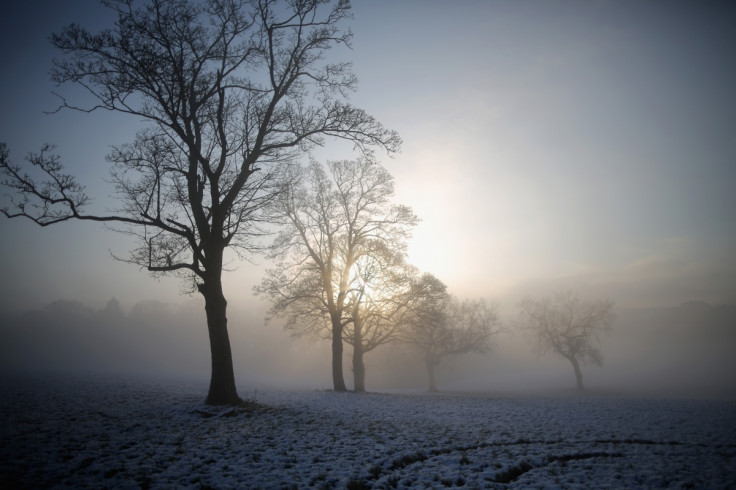UK weather: Warnings issued as Britain set for coldest period of winter

The UK has been told to prepare for a period of snow, ice and fog as the temperature is set to drop to below freezing in places. Most of the UK is expected to experience the coldest spell of the winter so far, in stark comparison to the mild conditions felt in December.
Parts of east England are set to be hit by sleet and snow showers, with areas close to the North Sea especially affected. Elsewhere, the west and north west are expected to see spells of sleet, snow and icy conditions on Saturday (16 January) and Sunday.
The Met Office has issued a yellow warning of ice for all of Wales, most of the east coast of Scotland and England and parts of southern England as temperatures are due to severely drop on Friday (15 January) night. Freezing fog patches are also likely overnight, most likely over eastern parts of Northern Ireland.
The Met Office's chief operational meteorologist, Dan Suri, said: "Clear skies will allow temperatures to fall widely below freezing on Friday evening. Particularly at risk of icy patches are roads, pavements and cycleways, which are either still snow-covered, where surfaces are wet from partially melted snow, or standing water and areas where wintry showers occur after dark. People should be aware of the potential for difficult travel conditions."
The elderly, people with long-term illness and those less mobile have been told to take extra steps to keep warm during the cold period.
Dr Angie Bone, head of Extreme Events at Public Health England, said: "Many places are going to feel really cold for the next few days, which may be a bit of a shock after our recent milder weather, so it's really important people take extra care when out and about.
"It's worth remembering that while most outdoor slips, trips and falls in weather like this are of those who are of working age, accidents can happen to anyone.
"If you're staying indoors have plenty of warm food and drinks to stay warm. Try to maintain indoor temperatures to at least 18°C, particularly if you are not mobile, have long-term illness or are over 65, and check weather forecasts and plan your day around them.
"Also take some time to think about how the bad weather may affect your friends and family, particularly if they are older or very young or have pre-existing health conditions. These groups can be particularly vulnerable. Remember that older people may not go outside to the shops, to hospital appointments and so on when weather is bad, so think what you could do to help them."
© Copyright IBTimes 2025. All rights reserved.






















